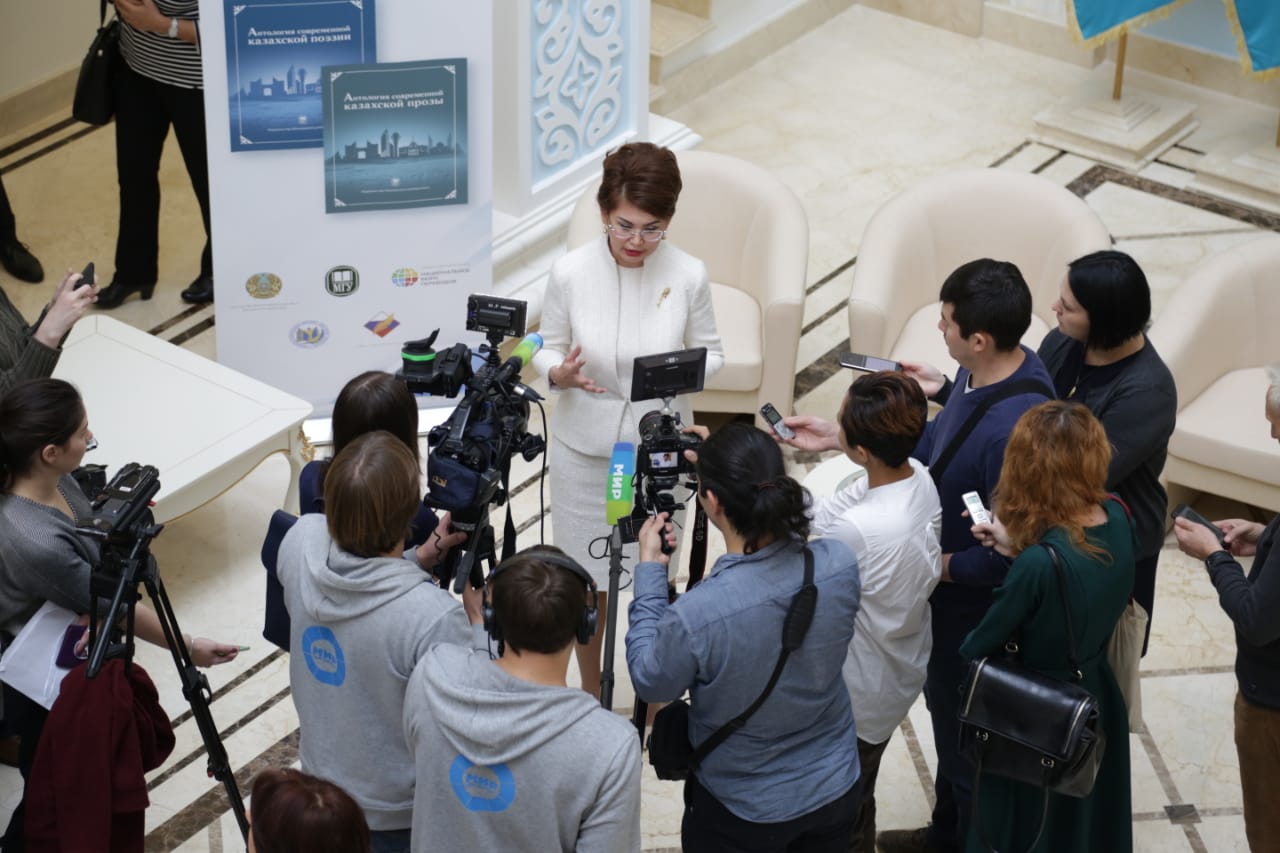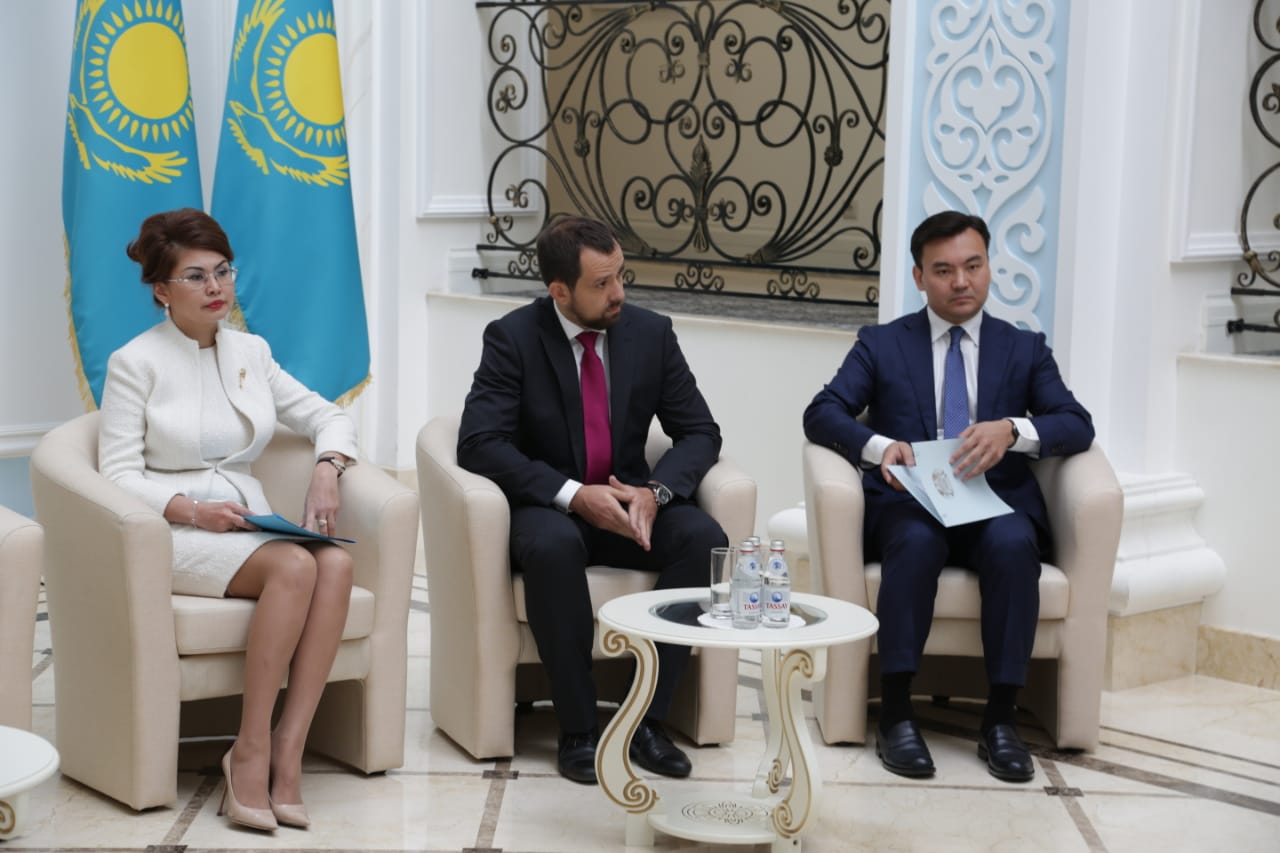"Literature dialogue has an important place in the cultural and humanitarian cooperation between Kazakhstan and Russia," Kazakh ambassador to Moscow Imangali Tasmagambetov said at a presentation of anthologies of modern Kazakh poetry and prose in Russian today. Huge two-volume book includes selected works of 60 Kazakh authors. Translation and publication of this collection were made possible by publishing house of the Moscow State University with participation of the Union of Writers of Russia.
Vladimir Chernov, head of the Office of Russian President on Interregional and Cultural Relations with Foreign Countries, noted that translation of the best examples of Kazakh prose and poetry into Russian is a major event of Russian-Kazakh humanitarian cooperation. "This demonstrates cultural closeness of our countries and our peoples," Chernov said. He recalled that next year Kazakhstan and Russia will celebrate 175th anniversary of the great poet and thinker Abay Kunanbaev. “His work is highly appreciated and respected in Russia,” Vladimir Chernov stressed. He expressed confidence that works of modern Kazakh authors will be received with huge interest by Russian readers, just like Russian literature is still in great demand in Kazakhstan.
It's important to mention that this anthology has been translated not only into Russian, but also into Chinese, English, Arabic, Spanish and French, and will be available to readers in 92 countries. “The number of potential readers may reach 2.6 billion people,” Aida Balaeva, assistant to president of Kazakhstan, head of the domestic policy department of the presidential administration, secretary of the national commission for implementation of the Rukhani Zhangyru program, said. According to her, presentations have already taken place in the UK, France and Spain.

Aida Balaeva also spoke about the Rukhani Zhangyru program for modernization of public consciousness, which was launched in 2017 at the initiative of first president Nursultan Nazarbayev. “Its core idea is that in modern world, competitiveness of nation is determined by its cultural and intellectual potential. The basis for multiplication and successful realization of this potential is preservation and development of history and culture, openness of consciousness, readiness for change, new knowledge and experience," Aida Balaeva said.
She highlighted several key areas that Nazarbayev emphasized, in particular translation of hundred best world textbooks in the field of humanitarian knowledge into Kazakh. Today 48 titles, which are taught in the best universities of the world, have already been translated.
She said that the translation of anthology into the UN languages was carried out from Russian version and thanked the team of publishing house of the Moscow State University and the Union of Writers of Russia for that. “This is our common contribution to development of intercultural dialogue between our countries,” Aida Balaeva stressed.

Imangali Tasmagambetov noted that this project is only the beginning of a large-scale work. “Since the state is involved in the project, it makes us hope that it's designed for a long time and will have great resonance and effect. I can't say that works of our writers and poets haven't been translated for 30 years, we were working on that, but the state has provided support in translation for the first time. This suggests that our humanitarian ties are becoming stronger with each passing year," ambassador said and wished there would be more and more presentations like that in following years.






